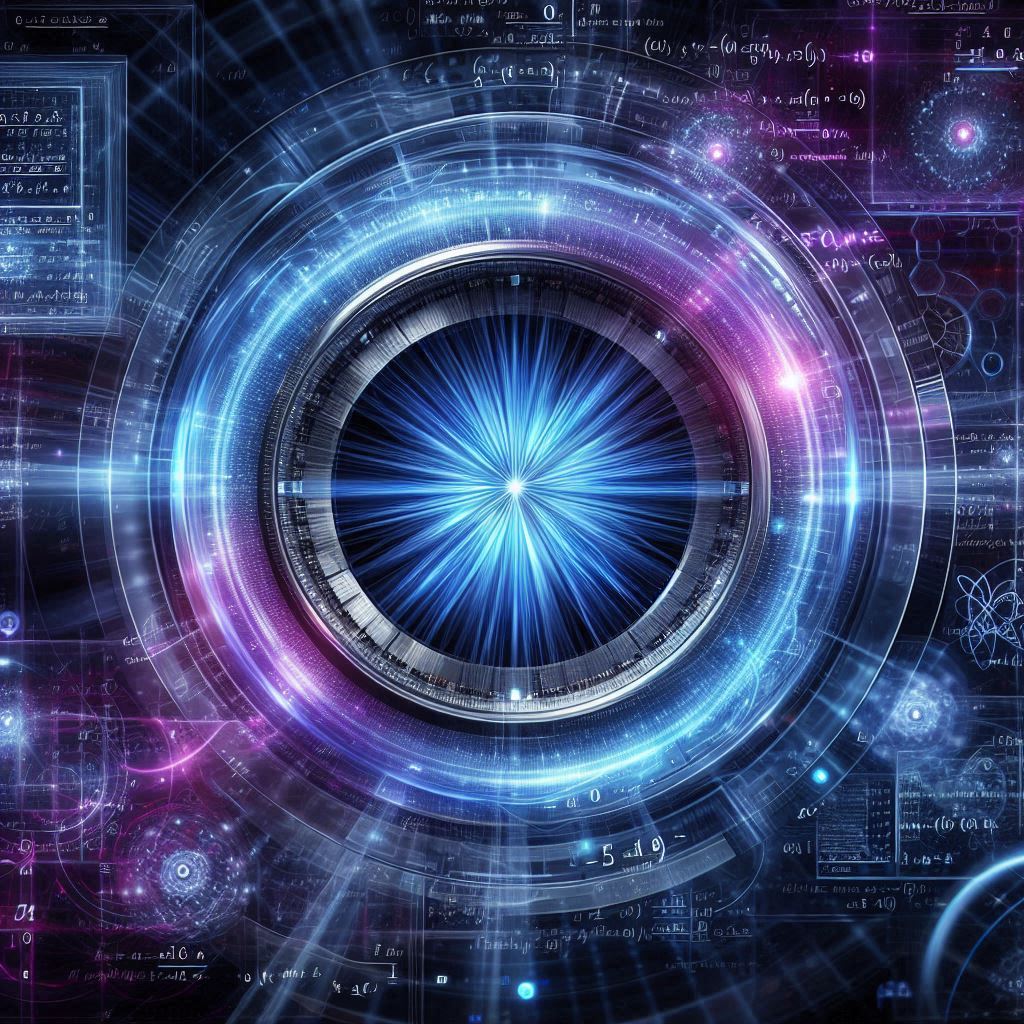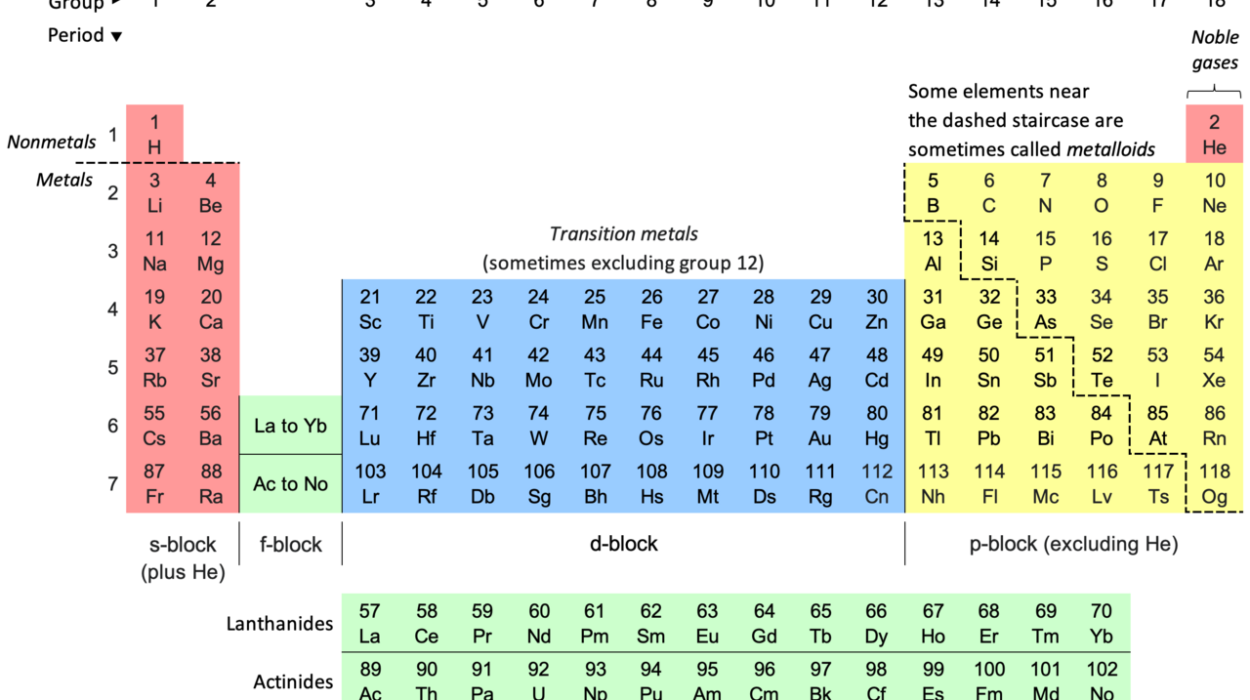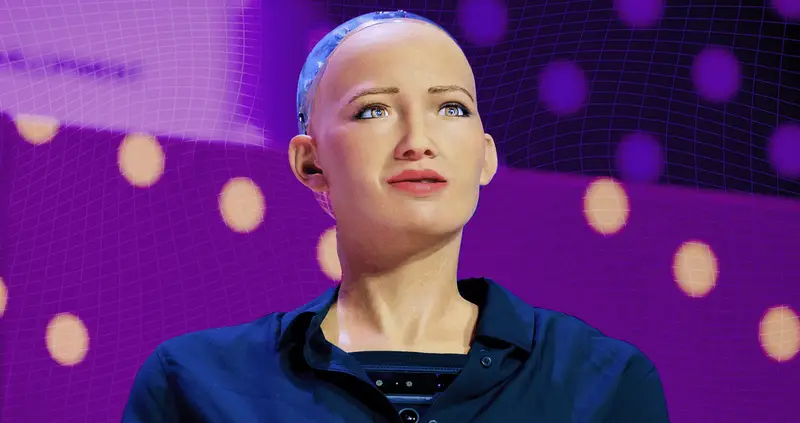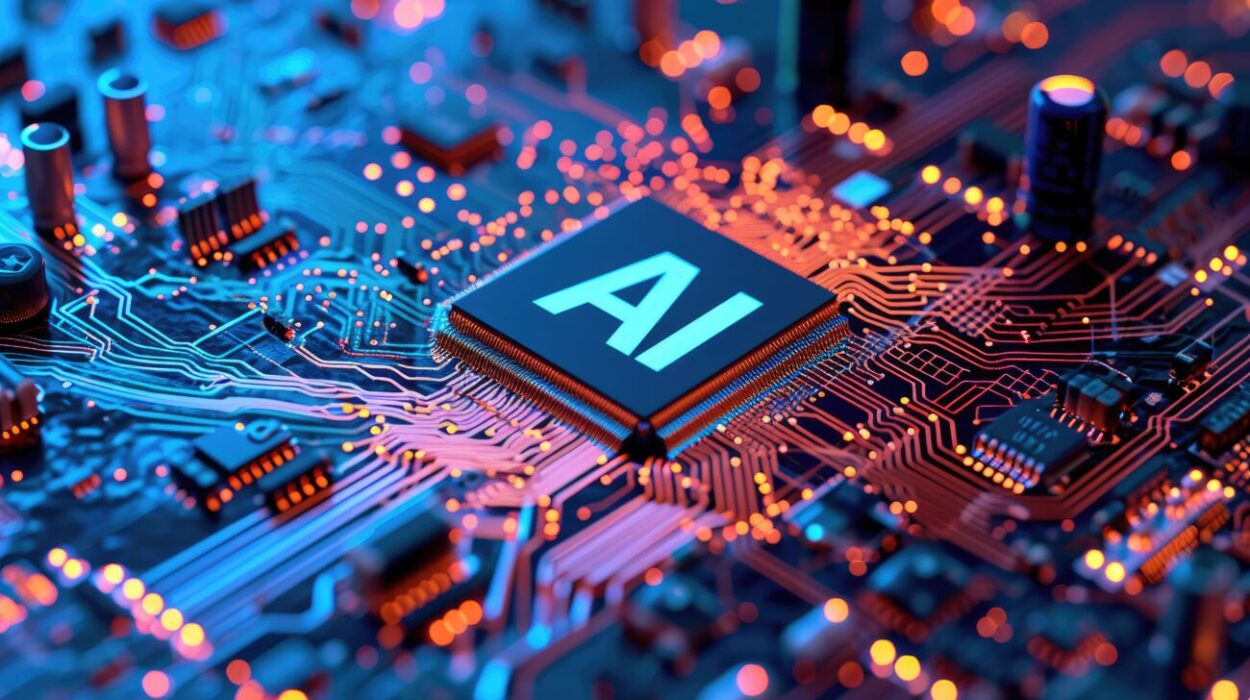Quantum algorithms represent one of the most transformative frontiers in modern science and technology. As quantum computing steadily advances from theory to practice, the development of new quantum algorithms will determine the full extent of its capabilities. These algorithms, leveraging the principles of superposition, entanglement, and quantum interference, promise to solve certain classes of problems far more efficiently than classical methods could ever achieve. From cryptography and optimization to artificial intelligence and materials science, quantum algorithms could revolutionize computation in ways that parallel — or even surpass — the digital revolution of the 20th century.
The future of quantum algorithms is deeply intertwined with both the maturation of quantum hardware and the evolution of our understanding of quantum information theory. As researchers push the limits of quantum devices, new frameworks for algorithm design are emerging that could reshape everything from computational complexity to machine learning. The next few decades are likely to witness a period of unprecedented progress in this domain, blending theoretical breakthroughs with practical applications that will define the next era of computation.
The Foundations of Quantum Algorithms
Quantum algorithms are mathematical procedures designed to run on quantum computers — machines that manipulate information according to the laws of quantum mechanics rather than classical physics. At the most basic level, quantum algorithms operate on qubits, the quantum analogue of classical bits. Unlike classical bits, which can exist in only one of two states (0 or 1), qubits can exist in a superposition of both states simultaneously. This property allows quantum computers to process a vast number of possibilities in parallel.
Entanglement, another key quantum property, allows qubits to share correlations in ways that have no classical counterpart. When qubits are entangled, the state of one qubit instantly influences the state of another, even if they are separated by large distances. Quantum interference, meanwhile, enables the selective amplification of correct answers and cancellation of incorrect ones during computation. Together, these principles enable quantum algorithms to explore and manipulate complex solution spaces with extraordinary efficiency.
The earliest and most celebrated examples of quantum algorithms — such as Shor’s algorithm for factoring large integers and Grover’s algorithm for unstructured search — demonstrated clear theoretical advantages over their classical counterparts. These breakthroughs in the 1990s established that quantum computing was not merely a theoretical curiosity but a genuine paradigm shift in computation. Since then, the field has grown into one of the most active areas of research in physics, computer science, and applied mathematics.
The Current State of Quantum Algorithm Research
Today, quantum algorithm research is advancing on several fronts. Scientists are working to extend the range of problems that quantum algorithms can tackle efficiently, to design methods that are robust against noise and decoherence, and to tailor algorithms to the limitations of near-term quantum devices. The current era is often referred to as the Noisy Intermediate-Scale Quantum (NISQ) era, characterized by quantum processors with tens to hundreds of imperfect qubits that cannot yet support full error correction.
In this phase, researchers have developed hybrid quantum-classical algorithms that leverage the strengths of both computational paradigms. Algorithms such as the Variational Quantum Eigensolver (VQE) and the Quantum Approximate Optimization Algorithm (QAOA) are leading examples. These approaches use quantum computers to evaluate quantum states while relying on classical optimization routines to iteratively improve performance. Though not yet capable of achieving exponential speedups, such algorithms have shown promise in areas like chemistry simulation and combinatorial optimization.
Beyond NISQ applications, theoretical research continues to expand the catalog of algorithms that could achieve quantum advantage — the point at which quantum computers outperform classical ones in meaningful tasks. Advances in quantum linear algebra, differential equation solving, and machine learning have extended the frontier of what quantum algorithms could achieve once hardware matures.
The Transition from NISQ to Fault-Tolerant Quantum Computing
The long-term future of quantum algorithms depends on the development of fault-tolerant quantum computers capable of performing arbitrarily long computations with negligible error rates. Quantum error correction, a process that encodes logical qubits into multiple physical qubits, is essential to this goal. Once fully error-corrected systems become feasible, a new generation of quantum algorithms can be realized that are currently only theoretical.
In the fault-tolerant era, quantum algorithms will no longer be constrained by noise or limited coherence times. Algorithms requiring deep quantum circuits, such as Shor’s factoring algorithm or quantum simulation of complex molecules, will become practically implementable. Moreover, error-corrected quantum computers will allow researchers to explore new algorithmic paradigms that rely on long-term entanglement and precise control of quantum gates, opening pathways to entirely new computational techniques.
The transition to fault tolerance will likely take place gradually, as hardware technologies — such as superconducting qubits, trapped ions, topological qubits, and photonic systems — advance in parallel with improved error-correction schemes. As this transition unfolds, quantum algorithm design will increasingly emphasize scalability and efficiency in resource usage, aiming to minimize the number of logical qubits and gates required for computation.
The Expanding Frontiers of Quantum Algorithm Design
The future of quantum algorithms will likely be defined by expansion into new scientific and technological domains. Traditional quantum algorithms like Shor’s and Grover’s represent only the beginning. The next generation will explore problems that are classically intractable not only due to computational complexity but also because of the intrinsic quantum nature of the systems being modeled.
In computational chemistry and materials science, quantum algorithms promise to simulate molecular and atomic interactions with unparalleled accuracy. Classical computers struggle to represent quantum many-body systems due to the exponential growth of their state spaces. Quantum computers, however, can represent these systems naturally, allowing for the calculation of ground-state energies, reaction rates, and other properties crucial to drug design, catalysis, and material engineering. The development of more efficient quantum simulation algorithms could lead to breakthroughs in understanding superconductivity, photosynthesis, and quantum phase transitions.
In optimization and logistics, quantum algorithms may transform industries that depend on complex decision-making. Quantum annealing and QAOA-like methods could be used to optimize routes, schedules, and resource allocations in real time. Though some of these approaches may offer only polynomial, rather than exponential, speedups, their impact could still be profound when applied to large-scale industrial problems.
Machine learning is another field poised to benefit immensely. Quantum machine learning algorithms exploit quantum linear algebra subroutines to perform classification, regression, and pattern recognition tasks more efficiently. Quantum neural networks and quantum generative models are emerging as promising frameworks that could enhance both the performance and interpretability of AI systems. Over the next decades, the synergy between quantum computation and artificial intelligence is expected to grow, possibly leading to entirely new models of learning and reasoning that cannot be replicated classically.
Quantum Advantage and Computational Complexity
A central question in the future of quantum algorithms concerns the limits of quantum advantage — the precise boundary separating problems that quantum computers can solve more efficiently than classical ones. Theoretical computer science has established that while quantum computing does not solve all hard problems efficiently, it does redefine the landscape of computational complexity.
Problems that are intractable for classical algorithms may fall into the realm of practical computation through quantum methods. Factoring, which underpins much of classical cryptography, is a prime example: Shor’s algorithm can factor large integers exponentially faster than any known classical algorithm. Similarly, quantum algorithms for linear systems of equations — such as the Harrow-Hassidim-Lloyd (HHL) algorithm — can offer exponential speedups in specific contexts.
However, quantum advantage is nuanced. Not every problem benefits from quantum acceleration, and the challenge lies in identifying which classes of problems can. Current research focuses on characterizing quantum complexity classes such as BQP (Bounded-error Quantum Polynomial time) and understanding how they relate to classical counterparts like P and NP. As our knowledge deepens, the design of future algorithms will likely focus on exploiting the unique computational structure that quantum systems naturally provide, rather than simply mimicking classical approaches.
Quantum Algorithms for Cryptography and Security
Cryptography stands at the forefront of the quantum revolution. The most famous example of a quantum algorithm’s disruptive potential is Shor’s algorithm, which can efficiently factor large integers and compute discrete logarithms — two tasks that underpin RSA and elliptic-curve cryptography. The future deployment of fault-tolerant quantum computers could render current public-key systems obsolete, prompting the urgent development of quantum-resistant or post-quantum cryptographic methods.
Yet quantum computing does not only pose a threat to security; it also offers new opportunities to enhance it. Quantum key distribution (QKD) protocols such as BB84 exploit quantum mechanics to guarantee secure communication. Future quantum algorithms could further improve cryptographic schemes by optimizing QKD protocols, error-correction codes, and randomness generation. The interplay between quantum algorithms and cybersecurity will become increasingly significant as both quantum and classical systems coexist in the coming decades.
Quantum Simulation: The Engine of Discovery
Quantum simulation is widely regarded as one of the most promising applications of quantum algorithms. Originally proposed by Richard Feynman in the 1980s, the idea is that a controllable quantum system can efficiently simulate another quantum system. Classical computers cannot handle the exponential complexity of many-body quantum interactions, making simulation one of the areas where quantum computers could achieve the most immediate and profound impact.
Future quantum simulation algorithms will enable scientists to model materials and chemical reactions with atomic precision. They could reveal mechanisms behind high-temperature superconductivity, molecular bonding, and energy transfer in biological systems. Quantum simulation may also accelerate the discovery of new drugs and materials by predicting properties that are currently inaccessible through experiment or classical computation.
Advanced algorithms will incorporate techniques such as tensor networks, variational approaches, and quantum Monte Carlo methods, adapted for quantum architectures. As quantum hardware improves, these simulations will evolve from small proof-of-concept systems to large-scale, high-fidelity models that could redefine computational science.
Quantum Algorithms in Artificial Intelligence
Artificial intelligence is undergoing a profound transformation, and quantum computing could amplify this transformation dramatically. Quantum algorithms offer new tools for processing vast datasets, optimizing complex models, and discovering patterns in high-dimensional spaces.
Quantum versions of classical machine learning algorithms, such as quantum support vector machines, quantum principal component analysis, and quantum Boltzmann machines, demonstrate how quantum linear algebra subroutines can accelerate computation. These algorithms take advantage of the fact that quantum computers can manipulate and encode data in high-dimensional Hilbert spaces, potentially enabling faster training and more expressive models.
Looking ahead, quantum-enhanced neural networks could redefine how AI systems learn and generalize. Quantum entanglement may allow for the representation of correlations that classical networks cannot capture, while quantum parallelism could reduce training times dramatically. Quantum reinforcement learning, in particular, shows promise for solving dynamic decision-making problems more efficiently than classical methods.
The integration of quantum algorithms into AI pipelines will not only accelerate computation but also inspire new theoretical frameworks for intelligence itself. Quantum information processing might offer a fundamentally different model of cognition — one that operates on probabilities, coherence, and interference rather than deterministic logic.
Quantum Algorithms for Optimization and Decision-Making
Optimization is at the core of countless real-world problems, from logistics and finance to energy management and machine scheduling. Quantum algorithms have shown particular promise in this domain through their ability to explore vast solution spaces efficiently.
Quantum annealing, a process that exploits quantum tunneling to escape local minima in optimization landscapes, has already demonstrated advantages in certain cases. The Quantum Approximate Optimization Algorithm (QAOA) extends this idea to gate-based quantum computers, using parameterized quantum circuits to approximate optimal solutions. Future refinements of these algorithms could revolutionize how we approach combinatorial optimization, resource allocation, and portfolio management.
Moreover, the development of hybrid quantum-classical optimization frameworks could yield practical benefits even before fully fault-tolerant quantum computers arrive. These hybrid systems can offload computationally intensive subproblems to quantum processors, accelerating solutions for logistics, finance, and complex engineering tasks. As quantum hardware scales up, optimization algorithms will likely become one of the first large-scale applications of quantum computing.
The Interplay of Quantum Algorithms and Hardware
The co-evolution of algorithms and hardware will shape the trajectory of quantum computing. Algorithmic innovation often depends on the capabilities of underlying hardware, just as hardware design can be guided by algorithmic requirements. The relationship between the two is symbiotic and dynamic.
Future quantum algorithms will be increasingly designed with hardware-specific optimizations in mind, tailoring circuits to exploit the strengths and mitigate the weaknesses of specific qubit technologies. For example, superconducting qubits might favor algorithms with short circuit depths, while photonic or trapped-ion systems might enable longer, more coherent computations.
At the same time, the development of hardware-efficient algorithms — those that minimize qubit count and gate operations — will become crucial for bridging the gap between theory and practice. Algorithm designers are already exploring techniques such as circuit compression, error mitigation, and adaptive compilation to make algorithms more compatible with the constraints of current and near-term devices.
As quantum processors move toward larger qubit counts and lower error rates, this synergy will accelerate progress, enabling the deployment of increasingly sophisticated quantum algorithms across diverse domains.
Challenges and Open Questions
Despite rapid progress, significant challenges remain before the full potential of quantum algorithms can be realized. One of the greatest obstacles is scalability: current quantum computers can only handle small-scale problems with limited accuracy due to noise and decoherence. Building fault-tolerant systems capable of supporting deep quantum circuits will require breakthroughs in materials science, fabrication, and quantum error correction.
Another challenge lies in algorithmic efficiency. Many proposed quantum algorithms show theoretical speedups but require enormous quantum resources, making them impractical with foreseeable technology. Researchers are striving to design algorithms that offer meaningful advantages within the limitations of near-term devices, balancing mathematical elegance with real-world feasibility.
Finally, there are profound conceptual questions at the intersection of quantum computing and complexity theory. What is the ultimate boundary of quantum advantage? Are there problems that quantum computers can solve efficiently that are provably intractable for classical machines? The answers to these questions could reshape our understanding of computation itself.
The Long-Term Vision of Quantum Algorithmics
Looking toward the distant future, the field of quantum algorithms is likely to evolve into a mature scientific discipline — one that integrates deeply with computer science, physics, and mathematics. As fault-tolerant quantum computers become reality, algorithmic innovation will expand beyond adapting classical methods into exploring wholly new paradigms of computation based on quantum mechanics.
In this future, quantum algorithms could become the backbone of global computation infrastructure, driving progress in materials design, drug discovery, cryptography, finance, and artificial intelligence. They could enable simulations of physical systems too complex for any classical supercomputer, provide real-time optimization for vast global networks, and help decode the most intricate patterns in nature and data.
Moreover, the insights gained from studying quantum algorithms may transcend computing itself, illuminating fundamental questions about information, entropy, and the nature of physical reality. Quantum computation, at its deepest level, is not merely a technological tool but a new way of thinking about the universe — one that reveals information as a physical entity governed by the laws of quantum mechanics.
Conclusion
The future of quantum algorithms is a story still being written — a convergence of theoretical brilliance, experimental ingenuity, and technological evolution. As quantum computers advance from the noisy prototypes of today to the powerful, fault-tolerant machines of tomorrow, quantum algorithms will guide their purpose and unlock their potential.
From simulating the building blocks of matter to transforming cryptography, optimization, and artificial intelligence, quantum algorithms stand poised to redefine the limits of human computation. They represent not only the next step in computational progress but also a profound extension of our capacity to model, predict, and shape the natural world.
In the coming decades, the continued interplay between physics, mathematics, and computer science will drive quantum algorithmic innovation forward. As we uncover new principles and techniques, the dream of harnessing the full power of the quantum realm will move from possibility to reality — opening an era where information, computation, and the fabric of the universe are united by the strange and beautiful laws of quantum mechanics.






